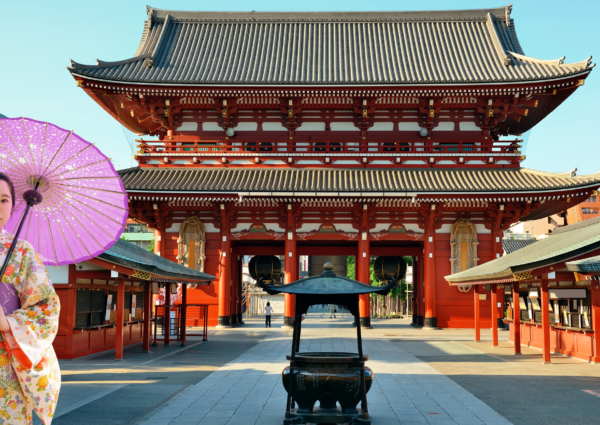News
June 19, 2025How long does it take to learn Japanese?

Many people consider learning Japanese to be difficult and impossible, or that it will take many years of their life, without considering the options that vary the time it takes to learn Japanese and become fluent, whether that means living in Japan, working in Japanese companies, teaching the language, among others.
If you know people who speak Japanese, you’ve probably had conversations where the question “How long did it take you to learn Japanese?” comes up. The answer can be “2 years,” “8 years,” or somewhere in between. Each person’s experience is completely different. I’ll tell you the main factors to consider when studying Japanese, which is directly related to the place or environment you choose to study.
As a reference, take into account the levels of Japanese
- N5: Being able to read and write very simple sentences, 800 words and 100 kanji
- N4: Being able to read simple sentences in everyday contexts, 1,500 words and 300 kanji
- N3: Being able to read longer texts, 4,000 words and 700 kanji
- N2: Being able to read articles, news, and brochures, 6,000 words and 1,000 kanji
- N1: Being able to read technical literature and articles, 10,000 words and 2,000 kanji
The following time estimates may vary depending on several factors such as: the student’s interest, how easily they learn new topics, their discipline and level of responsibility.

Self-taught Japanese study:
The route we usually take first is to learn on our own, thanks to the large number and variety of websites plus the variety of online content at our disposal, it seems like a viable option, thanks to so many people and organizations that make free courses, videos, documents where safe Japanese learning is offered at your own pace, it is normal to see that many students go through life from course to course, from YouTube channel to YouTube channel, from website to website looking for the answer to a question from the first course or the third course that we cannot understand, we go to Google and search for a topic, and of course there is information where we learn that topic and 5 more, and again, a question, we return to the first course and the YouTube channel…

Without realizing it, 5 years go by, and you’ve learned all the free tools available, and you likely have some knowledge and skills in the language, with a few gaps. Learning the language on your own is rewarding, as it’s not the most common way and demonstrates perseverance, as the fact that you don’t give up and continue learning demonstrates your discipline.
Because these studies aren’t conducted in a specific order and are usually done through various sources of information, the level achieved by self-taught students is usually N3 after studying between 5 and 8 years. Since Japanese levels are standardized, the lack of professionally organized guidance makes these gaps more important when it comes to leveling.
In conclusion, it’s an affordable way since it doesn’t come at a price, but it costs you a lot of time. It’s flexible and goes at your own pace, but it can leave you without the solid foundation needed to learn the Japanese language. It can demotivate you when you fall into a spiral of self-doubt.
Study at a language school:
Japanese language schools typically offer courses ranging from one day a week to four days a week, with programs tailored to specific goals, depending on the school. You can study Japanese at a school alongside high school, university, or work. This allows flexibility for those with busy schedules who want to study Japanese in the morning or at the end of their regular workday. This gives you time to balance your routine responsibilities with the Japanese language program tasks in order to progress with your learning. Your enthusiasm and responsibility for the language are key to advancing and expanding your knowledge.

As a note: Japanese requires good memory, so work on exercising your memory as much as possible.
This option is perfect for those who want to travel or move to Japan long-term, as it takes about 5 years to reach the N2 level, allowing the student to pave the way for their future in Japan.
To conclude, this option is affordable and doesn’t go at your own pace, but it is aligned with achieving a goal. You also have a teacher you can turn to with any questions, preventing you from falling into cycles of doubt.
Study with personalized teachers:
Teachers with experience teaching Japanese with organized programs are a good option for learning the language when you cannot commit to intensive courses since they take a good part of your day and are mainly online, although there are also in-person options.

Typically, it helps students learn the language and delve deeper into topics they aren’t clear about. Because it’s personalized, you can go at your own pace and focus on your weaknesses or unclear topics. Because it’s expensive, it’s often taken infrequently, typically 2 to 3 times a week at best, making progress slow but steady.
It’s important to note that personalized tutoring can sometimes be very helpful for self-taught students with occasional classes to address questions and concerns.
In four years of personalized classes averaging two days a week, a student can reach level N2 or N3, depending on their level of understanding, as some people find learning a new language easier than others.
In conclusion, it’s an expensive option, but with the flexibility of going at your own pace, with a completely personalized approach based on your financial capabilities and availability, you can advance quickly or slow down the learning process.
Study at a language school in Japan:
The intensive Japanese language course consists of 5 days a week with 2 classes per day, so it requires a significant investment of time, intellect, and, of course, financial investment. Considering that it’s in Japan, it requires travel, relocation, and residency, so it’s the most expensive option.

Since it requires your complete focus, it can’t fit well with a study routine like university programs or full-time jobs that take up eight hours a day. Besides school, there’s also a significant amount of work to do to train your memory with the daily kanji presented in class.
Studying Japanese while in Japan is a complete immersion in the language. You’re not just studying Japanese, you’re also living it. It surrounds you. You can’t avoid it, and this discomfort drives your brain to create its own version within this new world that surrounds you. Thanks to all these factors involved, students reach level N2 in 2 years, and you’re probably now wondering why it takes such a short time, and the thing is that the Japanese education system in Japan is perfectly aligned with the parameters of the JLPT (Japanese Language Proficiency Test) which is the proficiency test of this language by which the levels of Japanese are measured, so progress is directly related to the level of Japanese, providing students with certainty in their studies and ultimately, taking care of their financial investment and their valuable time.
In conclusion, it’s the most expensive option, but it offers the best relationship between progress and time. Due to immersion and the Japanese educational system, it’s the option that takes the least amount of time to achieve a high level of Japanese. Thanks to citizenship of the country and the financial investment, students tend to feel more committed to their studies.
Now you may wonder… What is best for me?
It’s difficult to answer this question without knowing your current situation, whether you have commitments that prevent you from doing so, whether you have a stable and healthy financial situation, whether you’re good at managing and organizing information you find online, among other things. However, it’s good to consider whether any of the aforementioned options are right for you, since we all go through different stages of life, and one option isn’t the best for everyone.
Although I can’t tell you that one way is better than another, I recommend that you follow your passions at whatever pace you can, regardless of how or when. But start now, as there’s no better time than now. I don’t want to sound unrealistic; I want to motivate you not to give up before you’ve even started and to think of your dreams as great realities you want to achieve. Learning a language isn’t easy for most people, and it’s normal to get stuck. As long as you’re not too hard on yourself, the learning process will be enjoyable.
As a personal tip, having a lot of compassion for yourself is the best way to start any new project, and studying Japanese is no exception. Being kind to yourself will help you not want to give up and not put unnecessary pressure on yourself, remembering that it is difficult for all of us and sometimes even for the Japanese themselves, so with a lot of patience, start; with fear of doing it, but even more scary is not living your dream of speaking Japanese.



